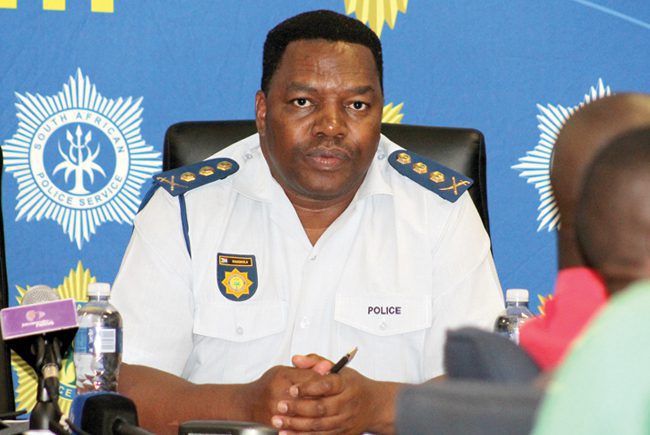President Cyril Ramaphosa on Friday took the stand at the South African Human Rights Commission’s (SAHRC’s) hearings into last year’s July unrest just a day after announcing the appointment of the little-known Gen Sehlahle Fannie Masemola as the country’s new national commissioner of police.
Ramaphosa’s testimony was candid in its acknowledgment of a government that was poorly prepared for what he described as an orchestrated campaign of public violence.
From the previous testimonies before the commission, South Africans know that the instability within the police ranks – especially the animosity between Police Minister Bheki Cele and the now-ousted police commissioner, Khehla Sitole – was one of the major contributing factors in the shambolic police response to the so-called “attempted insurrection”.
Ramaphosa’s testimony this week followed both Cele and Sitole’s appearances before SAHRC last year, which gave the clearest indication yet that law and order had broken down and the safety and security of this country’s citizens was in grave danger.
At the time, Cele painted a grim picture of an almost a non-existent relationship between him and Sitole, where “deliberation decisions” were taken to exclude him from crime intelligence reports dealing with threats analysis before former president Jacob Zuma’s incarceration last year, an incident widely believed to have been the main trigger of the unrest.
Sitole did not cover himself in glory during his testimony, which failed to correspond with the reality on the ground as painted by Cele. His testimony that a police operational plan existed in anticipation of Zuma’s arrest and possible violence and yet no intelligence was gathered on the actual violence exposed how incompetent he was.
If anything, it in fact lent credibility to Cele’s charge that Sitole was nowhere to be seen as KwaZulu-Natal and Gauteng teetered on the brink of mayhem.
Having been one of the deputy police commissioners, Masemola surely knows what he is walking into. Having made himself available to succeed Sitole in a volatile position where others failed, signals courage and conviction.
Masemola inherits a police force that does not enjoy public trust due to the high levels of crimes, with high-profile perpetrators seen to enjoy protection from the rule of law. We have yet to see the so-called instigators of the July arrest arrested and brought before the courts. Many prominent state capture perpetrators and their associates are still walking free, brazenly trying to occupy political office as their only route to avoid the possible consequences of their criminality.
Masemola will need to align all the provincial commissioners with the national crime prevention strategy. He needs to ensure that station commanders have integrity and community support, and are capable of forging strong relations with community police forums.
The restoration of the stability of the country’s security structures is critical in avoiding events such as last year’s July unrest as well as the crime gripping our communities, including violence against women and children.
Follow @SundayWorldZA on Twitter and @sundayworldza on Instagram, or like our Facebook Page, Sunday World, by clicking here for the latest breaking news in South Africa. To Subscribe to Sunday World, click here.



